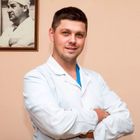
Premium Lifecell Agency
Tarasa Shevchenko Blvd, 62
Mastectomy
Starting from $5,896

Premium Lifecell Agency
Tarasa Shevchenko Blvd, 62
Established
Highlights at Premium Lifecell Agency
Map View
 Click to explore
Click to explore
-
Reviews
No Patient Review
Accreditations

Languages spoken
- English
- Polish
- Russian
- Ukrainian
Mastectomy at Premium Lifecell Agency
What does Premium Lifecell Agency offer patients?
How many specialists are there and what accreditation's have been awarded to Premium Lifecell Agency?
Facility Services Available at Premium Lifecell Agency

WHY US?
At Medijump, we're making medical easy. You can search, compare, discuss, and book your medical all in one place. We open the door to the best medical providers worldwide, saving you time and energy along the way, and it's all for FREE, no hidden fees, and no price markups guaranteed. So what are you waiting for?

Free

Best Price

Widest Selection

Risk-Free
What you need to know about Mastectomy in Kiev
Mastectomy is a surgical procedure to remove all breast tissue from a breast. The goal of this surgery is to treat breast cancer. It is often performed when a woman cannot be treated with breast-conserving surgery (lumpectomy), which is a surgery where only the tumor is removed while the breast is preserved. Mastectomy is also the main treatment for breast cancer in men. Because men only have little breast tissue, and most tumors in men appear under the nipple, surgeons usually need to remove the whole breasts. Depending on your situation, mastectomy can be done to remove only one breast (known as unilateral mastectomy) or both breasts (known as bilateral mastectomy).
Mastectomy may be recommended to treat numerous types of breast cancer, including early-stage breast cancer (Stages I and II), locally advanced breast cancer (stages III), ductal carcinoma in situ (DCIS), inflammatory breast cancer, locally recurrent breast cancer, and Paget’s disease of the breast. Your doctor may recommend mastectomy if the cancer is in a large area of the breast or cancer has spread all around the breast. A mastectomy may also be recommended if you have a very high risk of developing breast cancer. Mastectomy performed to prevent breast cancer is known as prophylactic mastectomy. Doctors also recommend mastectomy for people with gynecomastia.
In most cases, breast reconstruction can be done at the same time as your mastectomy, but you can also choose to have it at a later date.
Breast cancer can be dangerous and life-threatening. It can change every aspect of your life in different ways. Breast cancer can also spread to other parts of the body, causing more complications. After a mastectomy, your quality of life should improve. Cancer may not spread to other parts of the body, and you may have higher survival rates.
What's the Recovery Time for Mastectomy Procedures in Kiev?
The recovery period depends on the type of mastectomy you undergo. The total recovery time may take about 4 to 6 weeks. However, you will be able to get back to work within 2 to 3 weeks (if your job does not involve a lot of physical activities).
In the current phase, crucial steps involve efficiently dealing with any discomfort, ensuring that the operated section remains hygienic and moisture-free, executing prescribed workouts for enhancing the mobility of the arm and shoulder, participating in subsequent check-ins, and slowly resuming typical tasks.
Paying attention to what your physical system is signaling and carving out substantial rest periods for rejuvenation are fundamental elements in accelerating the healing process. Implementing a balanced, nutritious diet and keeping a positive mindset can also drastically aid in faster recovery. Make sure you stay well-hydrated and avoid any activities that might strain the surgical area. Reach out to your healthcare provider whenever you have any concerns or questions, and don't rush through the process - remember that healing takes time.
What's the Success Rate of Mastectomy Procedures in Kiev?
The survival rate for breast cancer patients may increase significantly after a mastectomy. A study revealed that 81.2% of women who had double mastectomy survived more than 10 years. In some cases, recurrence can occur, resulting in malignancy. This decreases the success rate of the procedure. Mastectomy done to treat gynecomastia is recorded to have a 90% success rate.
The positive outcome of a Mastectomy is highly dependent on thorough evaluations before surgery, skilled surgical execution, after-surgery care, and the patient's obedience to instructions following surgery. Subsequently, selecting a reputable medical facility with a demonstrated record of effective Mastectomy, offering a complete aftercare service, can significantly improve the total efficacy of the operation.
Popular Procedures in Kiev
Doctors at Premium Lifecell Agency
-

Mr Andrew Khodonovych
VIEW DETAILS
-

Dr Orest Panchuk
VIEW DETAILS
-

Dr Alexander Vasiliev
VIEW DETAILS
Hospitals and Clinics Nearby Premium Lifecell Agency Offering Mastectomy
CONTACT SUCCESSFUL







